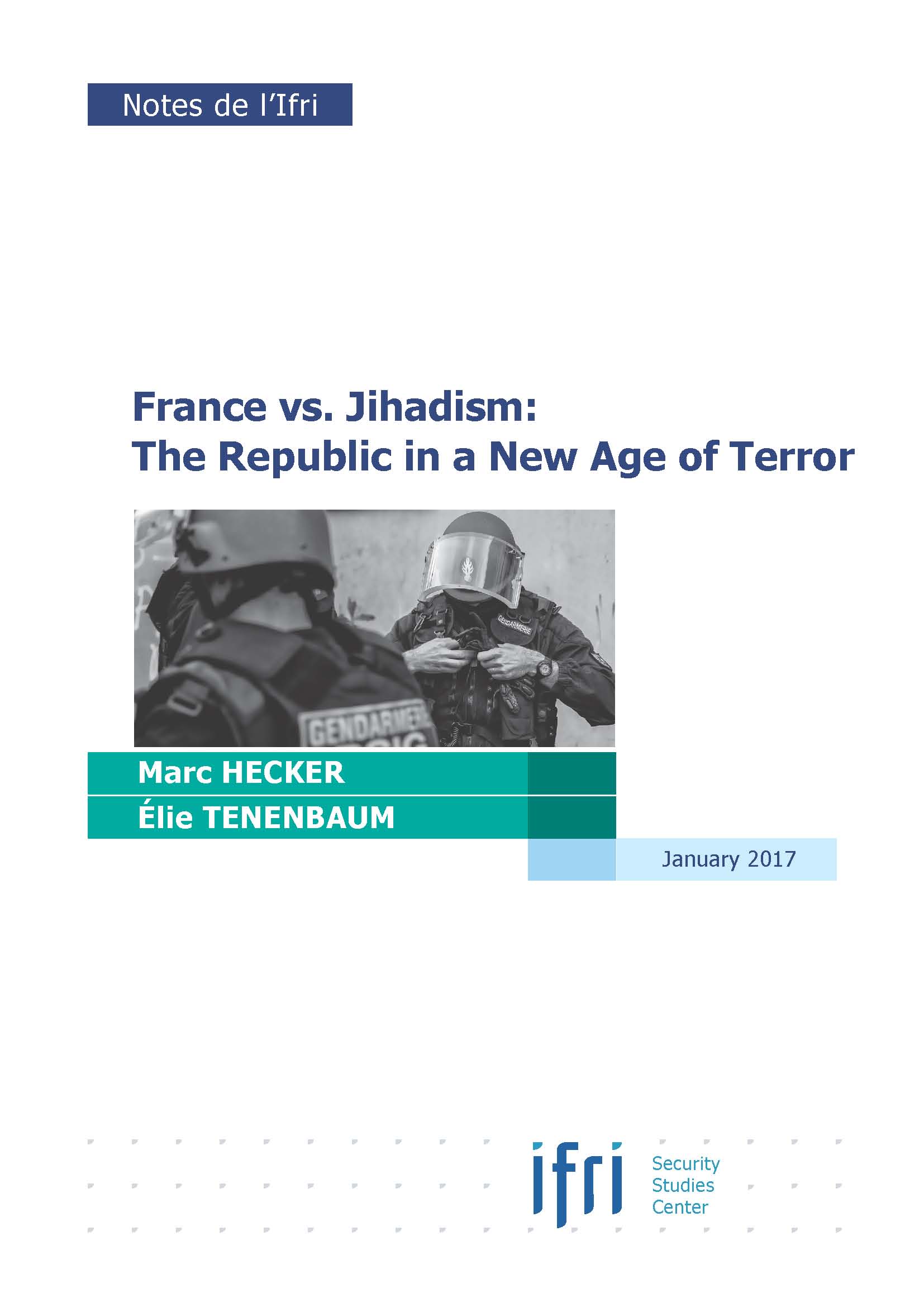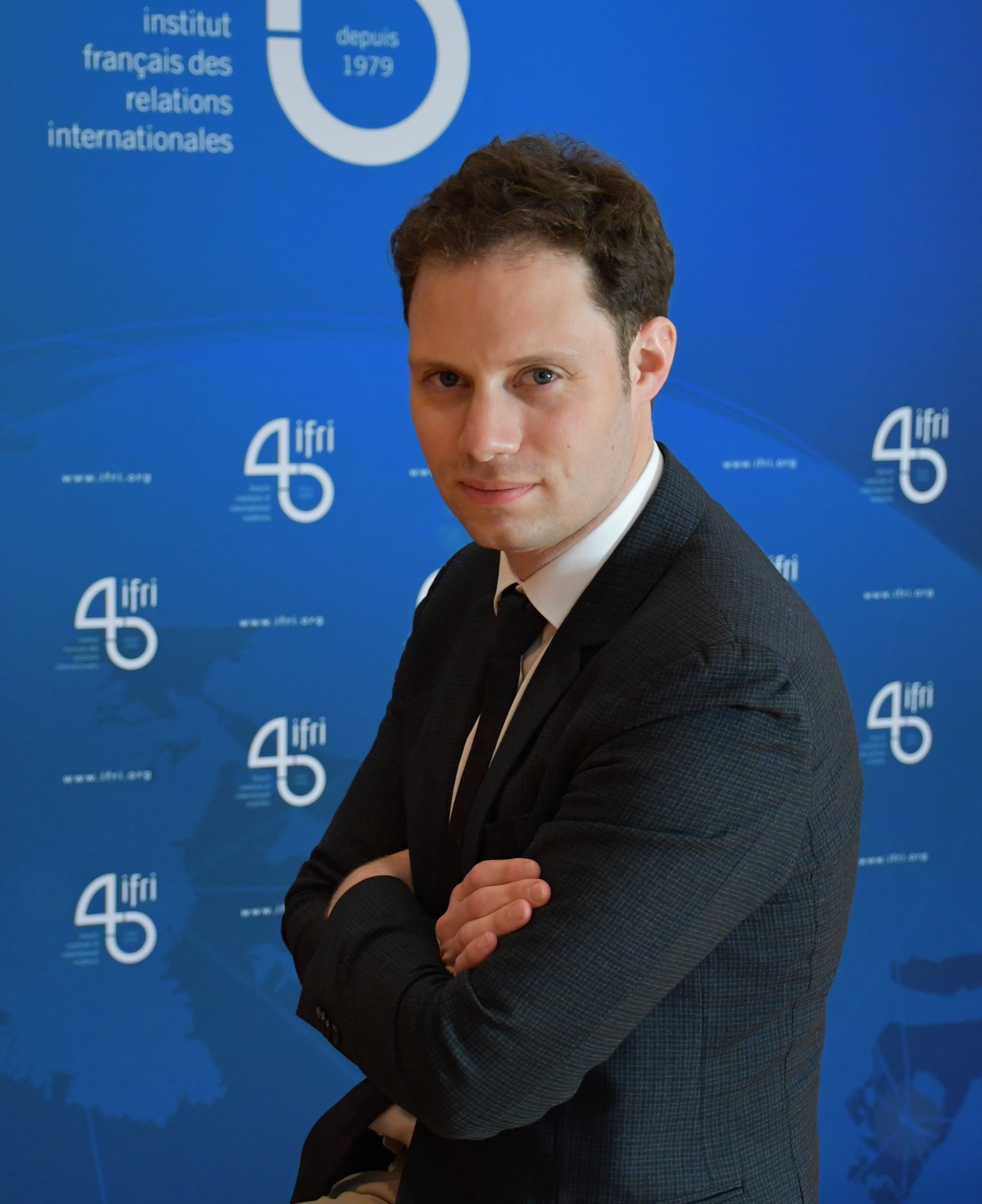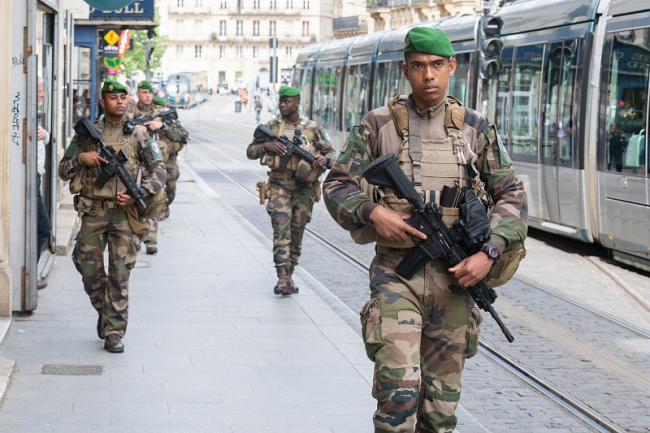France vs. Jihadism: The Republic in a New Age of Terror

This paper assesses the current state of the jihadist threat to France, as well as the French authorities’ security response. With the upcoming presidential election, 2017 will be a decisive year for the country. Terrorism will be at the heart of the campaign and ISIS will most likely try to strike again.

The current French Administration has certainly been very active in fighting terrorism. However, the threats originating from both outside and within the country remain extremely high. As ISIS is slowly dwindling in Iraq and Syria, the flow of returning jihadists will increase. This terrorist organization may be tempted to make up for its territorial loss by committing spectacular attacks in the West. France is also challenged internally. It must deal with unrelenting social and religious tensions, but also, more pragmatically, the fact that 80% of convicts of terrorism will be released over the next five years. This undoubtedly casts an ominous shadow over the future.
This paper was originally published in the following book: Abu Rumman, Mohammad Suliman et. al., Methods of Preventing and Combatting Terrorism in the MENA Region and in the West, Amman (Jordan), Friedrich Ebert Stiftung, 2016. It can be accessed at www.fes-jordan.org. An Arabic translation is also available: http://library.fes.de/pdf-files/bueros/amman/13088.pdf

Available in:
Regions and themes
Share
Download the full analysis
This page contains only a summary of our work. If you would like to have access to all the information from our research on the subject, you can download the full version in PDF format.
France vs. Jihadism: The Republic in a New Age of Terror
Related centers and programs
Discover our other research centers and programsFind out more
Discover all our analysesMapping the MilTech War: Eight Lessons from Ukraine’s Battlefield
This report maps out the evolution of key technologies that have emerged or developed in the last 4 years of the war in Ukraine. Its goal is to derive the lessons the North Atlantic Treaty Organization (NATO) could learn to strengthen its defensive capabilities and prepare for modern war, which is large-scale and conventional in nature.
"Iron Swords" A Military Analysis of Israel's War in Gaza
On October 7, 2023, Hamas' attack, dubbed “Al-Aqsa Flood,” caused a major shock and led Israel to launch the longest war in its history. Operation “Iron Swords” was notable for its unprecedented intensity, both in terms of the massive ground forces deployed and the firepower used.
Saudi Arabia’s Nuclear Temptations. Lessons Learned from Regional Instability
Saudi Arabia’s integration in the international arena and regional stability, notably through reducing its dependence on fossil energies, are crucial elements for the success of the Kingdom’s Vision 2030, the Crown Prince’s top priority. However, Mohammed bin Salman’s declarations in 2018 and 2021, indicating that “if Iran develops a nuclear bomb, we will follow suit as soon as possible”, combined with the recent strikes on key Iranian nuclear facilities, do not bode well for the future of the Kingdom, the region and the non-proliferation regime at large.
The Future of Air Superiority. Command of the Air in High Intensity Warfare
Air superiority, understood as control of the air, is a cornerstone of the Western art of warfare. It is a decisive condition, albeit not sufficient by itself, to achieve military victory, as it enables the concentration of air power toward the achievement of wider strategic objectives and protects other components from unbearable attrition levels. It is best achieved through the offensive use of air power in a joint effort to neutralize the enemy’s air power.














